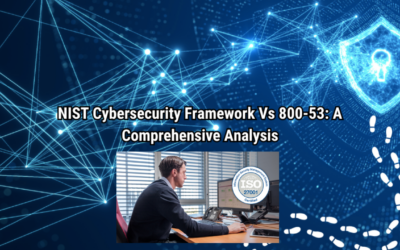Information security has become a top priority for businesses, government organizations, and even individuals. Data breaches, cyber-attacks, and the increasing value of sensitive information have made it essential for organizations to implement robust information security systems. One of the most recognized standards in information security is ISO 27001 Training, which provides a systematic approach to managing sensitive company information and protecting it from threats.
ISO 27001 is a part of the broader ISO/IEC 27000 family of standards, which focuses on information security management systems (ISMS). To implement this standard successfully and ensure that the organization’s data remains secure, employees must undergo comprehensive ISO 27001 training. This training equips them with the knowledge and skills needed to develop, implement, manage, and improve an ISMS.
This article will explore the importance of ISO 27001 training, the key components of the training, and how organizations can benefit from ISO 27001 certification.
ISO 27001 Training:
ISO 27001 is an international standard for information security management systems (ISMS). The standard outlines a set of best practices for securing sensitive company data by establishing a framework for the management of information security risks. ISO 27001 provides a structured approach to implementing, maintaining, and improving an ISMS within an organization. This helps organizations protect their information assets, minimize risks, and comply with legal, regulatory, and contractual obligations.
The main objective of ISO 27001 is to ensure that an organization’s information is protected from unauthorized access, disclosure, alteration, destruction, or loss. The implementation of an ISMS allows organizations to manage their information security risks through people, processes, and technology.
The standard is based on the Plan-Do-Check-Act (PDCA) model, which allows organizations to continuously monitor and improve their security measures.
Why ISO 27001 Training Is Crucial?
ISO 27001 is not just about compliance it is about fostering a culture of information security within the organization. One of the key ways to achieve this is through proper training. The following are some of the main reasons why ISO 27001 training is crucial for both individuals and organizations:
1. Understanding the ISO 27001 Framework
ISO 27001 training introduces participants to the principles and practices of the ISMS framework. With proper training, employees can understand how to align their daily activities with the best practices set out in the standard. This knowledge is essential for ensuring that information security is integrated into the organization’s culture and operations.
2. Ensuring Compliance and Reducing Risks
Organizations are increasingly being held accountable for the security of their data and the data of their customers. ISO 27001 certification is often a requirement for doing business with clients or suppliers in certain sectors. Proper training helps employees understand the compliance requirements of ISO 27001, reducing the risks of data breaches and non-compliance.
3. Building a Strong Information Security Culture
A significant aspect of ISO 27001 training is promoting a security-conscious culture within the organization. When employees are trained in information security best practices, they are more likely to follow security protocols and recognize potential risks. A well-trained workforce can help prevent security incidents before they occur.
4. Improving Efficiency and Effectiveness
ISO 27001 training provides individuals with the tools and knowledge to improve the organization’s information security practices. With an effective ISMS in place, organizations can better manage risks, avoid inefficiencies, and respond to security incidents in a timely manner. Additionally, trained professionals can identify areas for improvement within the existing security measures and suggest corrective actions.
5. Ensuring Continuous Improvement
ISO 27001 is not a one-time effort; it requires ongoing monitoring, evaluation, and improvement. ISO 27001 training encourages employees to continually assess and improve information security practices within the organization. By adopting a continuous improvement mindset, businesses can stay ahead of evolving threats and challenges.
Key Components of ISO 27001 Training

ISO 27001 training is structured to provide participants with a thorough understanding of information security management systems. Depending on the level of training, participants may focus on the following key components:
1. ISO 27001 Introduction
The first part of the training introduces participants to the ISO 27001 standard, its scope, and its relevance to information security. Key topics include:
- What is ISO 27001?
- The importance of information security
- The benefits of implementing an ISMS
- The structure and key concepts of ISO 27001
- The Plan-Do-Check-Act (PDCA) model and how it applies to ISMS
This foundational training gives participants an understanding of the standard and how it can be applied to their organizations.
2. Risk Management and Assessment
A critical aspect of ISO 27001 is risk management. ISO 27001 training helps individuals learn how to identify, assess, and manage information security risks. This component covers:
- Risk identification and assessment techniques
- Risk treatment options (accept, avoid, transfer, or mitigate)
- The concept of risk appetite and risk tolerance
- Developing a risk treatment plan
- The role of risk management in ISMS implementation
Participants will learn how to conduct a thorough risk assessment and develop risk management strategies that align with the organization’s security objectives.
3. Control Objectives and Controls
ISO 27001 defines a series of security controls and objectives to mitigate the risks associated with information security. Training participants will learn about the Annex A controls of the standard, which include:
- Organizational controls (e.g., management commitment, internal audits)
- Human resource security controls (e.g., employee screening, awareness training)
- Asset management controls (e.g., inventory management, data classification)
- Access control policies (e.g., user authentication, password policies)
- Cryptographic controls (e.g., encryption protocols)
- Operational security controls (e.g., incident management, business continuity)
Each control is designed to address specific risks related to information security and is vital for achieving and maintaining ISO 27001 certification.
4. Developing and Implementing an ISMS

ISO 27001 training helps individuals understand how to develop and implement an ISMS tailored to the needs of their organization. Key components of this training include:
- Defining the scope of the ISMS
- Identifying and assessing information security risks
- Establishing security objectives and policies
- Developing and implementing security controls
- Conducting employee awareness training
- Establishing incident management procedures
- Monitoring and reviewing the ISMS
- Preparing for audits and certification
Training participants will learn the entire process of creating an ISMS from start to finish and gain practical experience in managing security efforts.
5. Internal Audits and Certification Process
An important aspect of ISO 27001 training is preparing participants for internal audits and the certification process. These topics cover:
- The purpose of internal audits.
- Planning and conducting internal audits.
- Preparing for an external audit by a certification body.
- Corrective and preventive actions.
- How to maintain certification.
Participants will gain insights into the audit process and learn how to prepare their organization for an ISO 27001 certification audit.
Types of ISO 27001 Training
ISO 27001 training is available at various levels to suit the needs of individuals and organizations. The most common types of ISO 27001 training include:
1. Foundation:
Foundation training is ideal for individuals who are new to information security or ISO 27001. This training provides a basic understanding of the standard, its structure, and its components. It is suitable for employees at all levels who need to be familiar with ISO 27001’s principles and requirements.
2. Lead Implementer:
Lead implementer training is for professionals responsible for leading the implementation of ISO 27001 within an organization. Participants in this training will learn how to manage and coordinate the development, implementation, and continuous improvement of an ISMS. This training is suitable for project managers, security professionals, and consultants.
3. Lead Auditor:
Lead auditor training is designed for professionals who will be involved in auditing ISO 27001 systems. Participants will learn how to conduct internal and external audits, assess the effectiveness of an ISMS, and ensure compliance with the standard. This training is ideal for auditors, quality assurance professionals, and compliance officers.
4. Awareness:
Awareness training is typically provided to all employees within an organization to ensure that they understand the importance of information security and their role in maintaining a secure environment. This training focuses on security best practices, such as password management, data protection, and recognizing potential threats.
Benefits for Organizations:
- Improved security posture: Employees will be more equipped to identify and mitigate security risks, improving the overall security of the organization.
- Regulatory compliance: ISO 27001 certification helps organizations comply with various data protection laws and industry regulations.
- Reduced costs: By managing risks proactively, organizations can avoid costly data breaches and security incidents.
- Enhanced reputation: Organizations that demonstrate a commitment to information security build trust with clients, customers, and stakeholders.
- Business continuity: Proper training ensures that employees know how to respond to security incidents, ensuring the continuity of critical business operations.
Conclusion
It plays a pivotal role in equipping individuals with the necessary knowledge and skills to develop, implement, and manage an Information Security Management System (ISMS). As information security becomes increasingly important in today’s connected world, organizations must ensure that their staff members are well-trained in ISO 27001 standards. Whether for foundation knowledge, leadership in implementation, or conducting audits, ISO 27001 training offers significant benefits, including enhanced security, compliance, and operational efficiency.



0 Comments